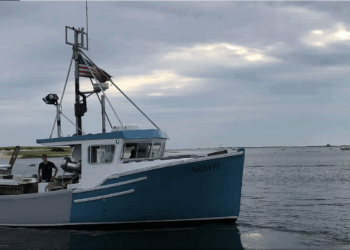Guide to Best Practices for the Collection and Recycling of Plastic Waste from Fishing – Among the actions contemplated in the European project INdIGO, which aims to reduce plastic waste from the fishing industry that could end up in the sea, there is also the Guide to Best Practices aimed at assisting the public, organizations, and volunteer groups in good recycling habits.
The guide was produced by the University of Plymouth, a key partner in this important project, and is a simple, illustrated, and easy-to-read brochure for everyone, including children, to raise awareness of the devastating effects of plastic waste ending up in oceans, the collection facilities available, the different recycling stages of fishing equipment, and the ability to create new products from recycled plastic.
The new Guide to Best Practices informs the public about the dangers of plastic polluting oceans, the benefits of recycling to create a circular economy, the necessary processes to collect, sort, transport, and recycle plastic, as well as the actions that we can all take to contribute to reducing the problem.
The brochure also informs about the Fish and Click app that allows beach cleaners to record discarded fishing gear as part of the INdIGO Citizen Science research. The new guide also provides details on the new biodegradable fishing nets that have been developed by researchers and industrial partners of the project, to provide a more sustainable future for fishing activities.
The website also provides information on products currently made from recycled fishing nets, including surfboards, leggings, coffee cups, and paddles.
Guide to Best Practices for the Collection and Recycling of Plastic Waste from Fishing







